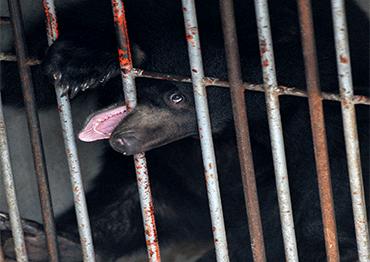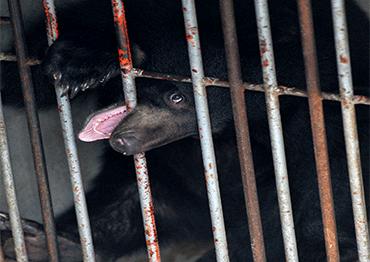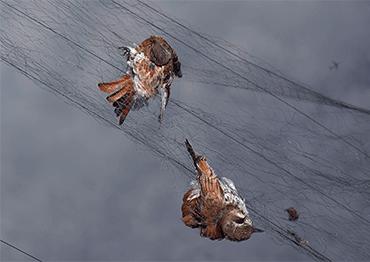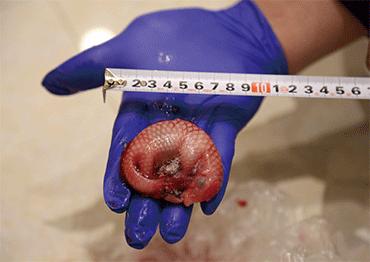Since the outbreak of the coronavirus, some leading conservation organizations in China distributed a questionnaire on Chinese social media, receiving over 100,000 responses. More than 90 percent of respondents said they supported a ban on all trade in wild animals, including food consumption, medicinal use and other uses, which would include things like fashion.
The draft regulation Shenzhen released indicated that only nine domesticated terrestrial animals -pigs, cattle, sheep, donkeys, rabbits, chickens, ducks, geese and pigeons as well as aquatic animals -are categorized on a “white list” allowing for the consumption of meat.
According to an anonymous official from the Legislative Affairs Committee under the Shenzhen People’s Congress, this “white list” was decided in the draft plan according to preliminary research which indicated that these species are the main products in Shenzhen’s food markets which can meet most residents’ dietary habits. As the drafters are still soliciting public comments, the white list is not yet finalized.
“In reality, it’s hard to ban wild animal consumption, since it’s difficult to define which species are categorized as wild animals and which are not. So it’s really necessary to have a list,” Sun told the Legal Daily. Guo Peng from the Animal Protection Research Center at Shandong University recommended that the list of animals for consumption should be adapted according to their changing population in the wild.
Lu Zhi from Peking University also said a list is needed. For those who consume and use wildlife, the new rules will require a complete attitude reversal. A white list of species is a different path from the present law. “This is driven out of consideration for public health, since the pathogens don’t care if an animal is protected or not when they are picking a host,” she said.
Legal expert Liu Jinmei from Friends of Nature told NewsChina in early March that both it and the Shan Shui Conservation Center had recommended the setting up of an independent and open scientific committee to monitor the setting of quotas, listing, updating and readjusting, to ensure the rules were scientific and neutral.
“The rules for fixing a white list, we believe should be based on scientific evidence and thorough scientific evaluation and recognition,” Liu told NewsChina. “It should ensure transparency and openness for public monitoring while allowing timely updating and adjustment.”
According to the article by Lu’s team, there should be prerequisites for categorizing species on the white list. Species should have stable wild populations and breeding should involve advanced techniques to ensure sustainable captive breeding without any need for resupply with wild species. There must be quarantine standards and an established low level of risk to public health and a breeding record and individual data of its pedigree to allow tracking of its origin, as well as open information from breeding to utilization to allow supervision from authorities and the public. The article also suggested a white list of certified companies with a good record in the captive breeding industry should be established.
Despite overwhelming public support for a complete ban on eating wildlife, particularly under the current conditions, there has been pushback from those involved in the trade. Liu Jinlong, a researcher with National Academy of Development and Strategy at the Renmin University of China, cautioned in early March that “we should not throw the baby out with the bathwater,” indicating the high profits and employment of the industry contributed to the country’s economy.
On February 16, the Frog Breeding Special Committee affiliated to the China Wildlife Conservation Association (CWCA) published an article which described wild animal breeding and farming as the “great initiative of our human ancestors.”
The article stated that deciding to completely ban wild animal consumption is arbitrary, since people had always eaten wild animal products.
The article immediately aroused heated debate online, and it was slammed by animal rights activists. Under online query and pressure, the CWCA was forced to apologize and expressed its plan to disband the Frog Breeding Special Committee.
According to Lu, the development of the wild animal breeding industry involves a complicated network of interest groups and patronage. “For breeding farmers, especially those in poor, remote rural areas, the decision might severely damage their rights, so there should be a compensation system to help those farmers switch to other ways of making a living,” she said.

 Old Version
Old Version


